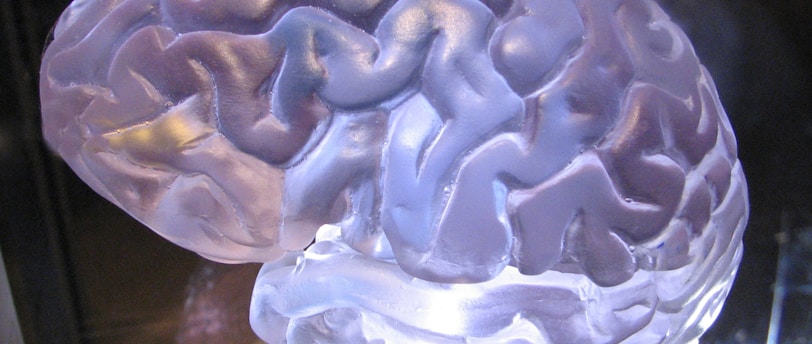NAD+ and NMN Supplements: Potential Benefits for Parkinson’s Disease
How NAD+ and NAD Treatment with NMN supplement can help with Parkinsons Disease
Harry Rainer
11/26/2024


Parkinson’s Disease (PD) is a progressive neurodegenerative disorder that primarily affects movement control, causing tremors, stiffness, balance problems, and other debilitating symptoms. The disease is linked to the loss of dopamine-producing neurons in the brain, leading to a gradual decline in motor function and quality of life. While there is no cure for Parkinson’s Disease, emerging research suggests that NAD+ treatment and NMN supplements may offer promising therapeutic benefits in slowing disease progression and improving symptoms. In this article, we’ll explore what NAD+ and NMN are, how they work, and how these treatments could help individuals living with Parkinson’s Disease.
What is NAD+ and How Does It Work?
Nicotinamide adenine dinucleotide (NAD+) is a crucial coenzyme found in every living cell. It plays a key role in energy production, DNA repair, cellular metabolism, and maintaining mitochondrial function. NAD+ exists in two forms: NAD+ and NADH, which are involved in redox reactions that produce energy within cells. As we age, our NAD+ levels naturally decline, and this depletion is thought to contribute to various age-related diseases, including neurodegenerative conditions like Parkinson’s Disease.
NAD+ helps repair damaged DNA and supports the activity of sirtuins, proteins involved in cellular health, stress resistance, and inflammation regulation. In neurodegenerative diseases like Parkinson’s Disease, increasing NAD+ levels could help improve mitochondrial function, protect neurons, and slow the progression of symptoms.
What is NMN and Its Role in Parkinson’s Disease?
Nicotinamide mononucleotide (NMN) is a precursor to NAD+. When ingested, NMN is converted into NAD+ within the body, helping replenish depleted NAD+ levels. NMN supplements have gained attention for their potential to boost NAD+ levels, improve energy production, and promote overall cellular health.
Research suggests that NMN supplementation may help address mitochondrial dysfunction, a key factor in the development of Parkinson’s Disease. Mitochondria are the powerhouses of cells, and in neurodegenerative diseases like Parkinson’s, their malfunction accelerates the degeneration of neurons. By boosting NAD+ levels through NMN, it may be possible to restore mitochondrial function, protect neurons, and potentially slow the progression of Parkinson’s Disease.
How NAD+ and NMN Treatment Can Help with Parkinson’s Disease
Supporting Mitochondrial Function Mitochondrial dysfunction is a hallmark of Parkinson’s Disease. The loss of dopamine-producing neurons is partly attributed to impaired mitochondrial function. NAD+ is essential for mitochondrial health and energy production. By increasing NAD+ levels through NMN supplementation or NAD+ therapy, mitochondrial function may be enhanced, helping to protect neurons from further damage and slow the progression of the disease.
Reducing Oxidative Stress Oxidative stress, caused by an imbalance between free radicals and antioxidants, contributes to neuronal damage in Parkinson’s Disease. NAD+ plays a vital role in cellular defense against oxidative stress by supporting the function of antioxidant enzymes. By boosting NAD+ levels, NMN supplementation could help reduce oxidative damage to brain cells, potentially alleviating symptoms and slowing disease progression.
Enhancing DNA Repair In Parkinson’s Disease, DNA damage and cellular dysfunction contribute to the death of dopamine-producing neurons. NAD+ is involved in activating sirtuins, enzymes that promote DNA repair and protect cells from stress. By increasing NAD+ levels through NMN supplementation, it may be possible to improve DNA repair processes and protect neurons from the damage that accelerates the disease.
Reducing Inflammation Chronic inflammation in the brain plays a significant role in the progression of Parkinson’s Disease. NAD+ has been shown to have anti-inflammatory properties by modulating the immune response and reducing neuroinflammation. By increasing NAD+ levels through NMN, it may be possible to reduce inflammation in the brain, which could help manage symptoms and slow down the degeneration of brain cells.
Protecting Dopamine-Producing Neurons Parkinson’s Disease is characterized by the loss of dopamine-producing neurons in the brain, which leads to motor control issues. NAD+ has neuroprotective properties and may help protect dopamine-producing neurons from damage caused by oxidative stress and inflammation. Research suggests that NAD+ supplementation could slow the progression of neuronal damage, preserving motor function and enhancing quality of life for people with Parkinson’s Disease.
Improving Cognitive Function In addition to motor symptoms, Parkinson’s Disease can also cause cognitive decline and impair memory. NAD+ has been linked to improved cognitive function and enhanced brain health. By increasing NAD+ levels, NMN supplementation may help improve mental clarity, memory, and cognitive performance, potentially alleviating some of the cognitive symptoms associated with Parkinson’s Disease.
How to Use NAD+ and NMN for Parkinson’s Disease
NAD+ treatment and NMN supplementation are typically available in oral or intravenous (IV) forms. Oral NMN supplements can be taken daily to support NAD+ levels, while NAD+ IV infusions are typically administered in clinical settings for more immediate effects.
While more clinical studies are needed to confirm the full benefits of NAD+ and NMN for Parkinson’s Disease, early research is promising. Always consult with a healthcare provider before starting any new supplements or treatments, especially for chronic conditions like Parkinson’s Disease.
Conclusion
NAD+ treatment and NMN supplements offer exciting potential for individuals with Parkinson’s Disease. By boosting NAD+ levels, these therapies may help support mitochondrial function, reduce oxidative stress, enhance DNA repair, and protect dopamine-producing neurons from damage. While further research is necessary, NAD+ and NMN supplementation may offer a valuable addition to current Parkinson’s Disease treatment options, helping to slow disease progression and improve quality of life. As science continues to explore these therapies, NAD+ and NMN could become important tools in managing Parkinson’s Disease and other neurodegenerative conditions. Furthermore, it is always recommended to consult with proffesionals such as NAD+ Thailand or NAD+ Indonesia.
